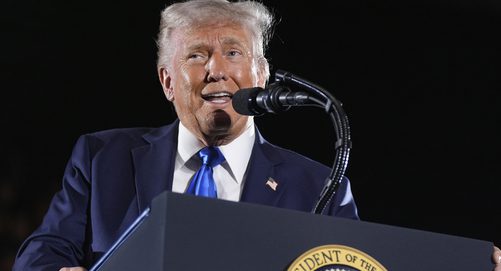Trump Announces 100% Tariff On Foreign Films, Calls Hollywood’s Decline A ‘National Security Threat’

New Delhi: U.S. President Donald Trump announced a sweeping new trade measure on Sunday, declaring a 100% tariff on all films produced in foreign nations coming to the United States. In a post on Truth Social, Trump said the drastic action was needed to counter what he described as a rapid collapse of the American movie industry, driven by foreign incentives luring away U.S. filmmakers.
“The Movie Industry in America is DYING a very fast death,” Trump warned in the post, adding that countries around the world are “offering all sorts of incentives to draw our filmmakers and studios away from the United States.” He framed the issue as more than just economic, calling it “a concerted effort by other Nations and, therefore, a National Security threat.”
To implement the policy, Trump said he has directed the Department of Commerce and the U.S. Trade Representative to “immediately begin the process of instituting a 100% Tariff on any and all Movies coming into our Country that are produced in Foreign Lands.”
The U.S. Trade Representative (USTR) has echoed some of Trump’s concerns in recent months, pointing to non-tariff trade barriers, such as tax breaks and regulatory frameworks abroad, that may undercut American film production. Cities like Toronto and Dublin have become popular destinations for major Hollywood productions, thanks to their generous tax incentives.
In response to the shift, California Governor Gavin Newsom recently proposed a significant tax credit aimed at revitalizing in-state movie and television production and reversing Hollywood’s downturn. The industry itself has been struggling post-pandemic, with U.S. box office sales down and audiences gravitating toward home-streaming platforms. The lack of major theatrical releases has only deepened the crisis.
Trump’s move adds to his legacy of unconventional trade policies, which have already stirred turbulence in global markets. Whether this latest action will revive domestic film production, or ignite a new trade dispute, remains to be seen.




